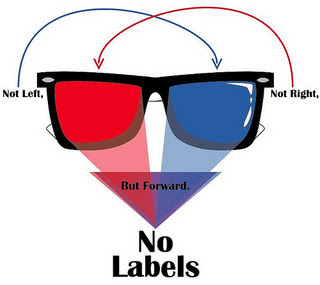 |
| Flickr/katja.torres |
The Economist presented a blog post
Personality and Polarisation confirming that conservatives and liberals do have different personalities:
"Among the "big five" personality traits, two are significantly associated with ideological sympathies. "Conscientiousness" is pretty much what it sounds like. .......Conscientiousness is positively associated with conservatism. The other politically-relevant personality trait, "openness to experience" is a bit harder to characterise, but "involves active imagination, aesthetic sensitivity, attentiveness to inner feelings, preference for variety, and intellectual curiosity." Openness is positively associated with liberalism.......... So, to summarise, if you're low in "conscientiousness" and high in "openness", you probably identify as liberal; if you're high in conscientiousness and low in openness, you probably identify as conservative."
This blog post continues by referring to Richard Florida's book Who's Your City? , in "which Florida found evidence that different regions and cities do have somewhat different personalities." "Conscientious" people, for example, live predominantly in the Southeast and Southwest, while "Open to experience" people live mainly in the Northeast and along the West Coast. The trend of like-minded people living or moving near to each other was confirmed in the groundbreaking book, The Big Sort by Bill Bishop.
All this research in turn reinforces the idea that "increasingly politically homogeneous populations settle on increasingly extreme consensus positions." In the end this brings The Economist to the tentative conclusion "that increasing political polarization is due ..to the sorting of American voters into parties by personality." So, yes, the polarization going on in U.S. politics is no longer about politics or ideology, but because of clusters of different personalities.
Finally, the Political Party Traits chart although not scientific, may show where your personality fits in politically.
No comments:
Post a Comment